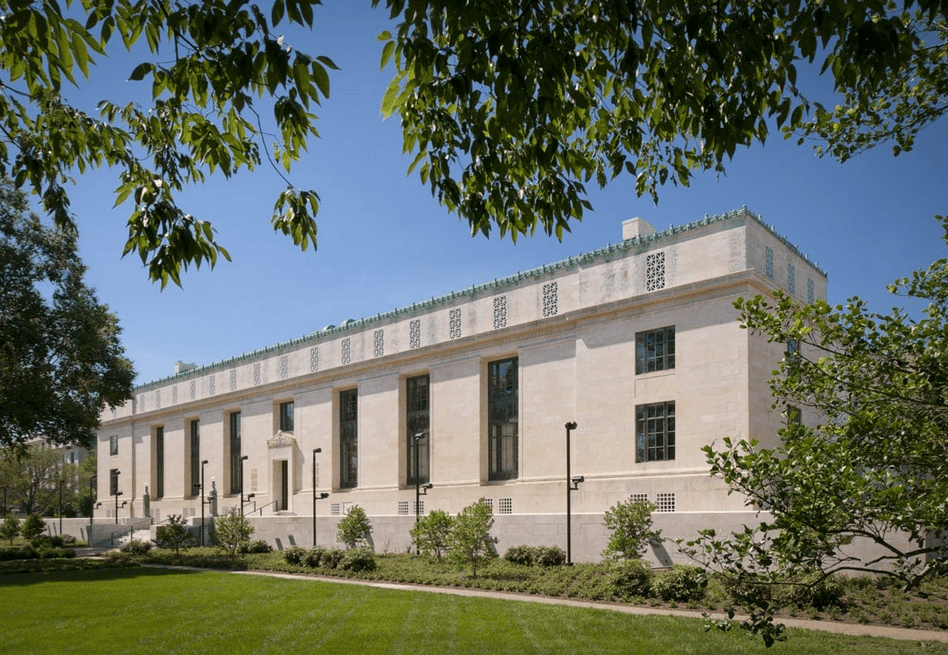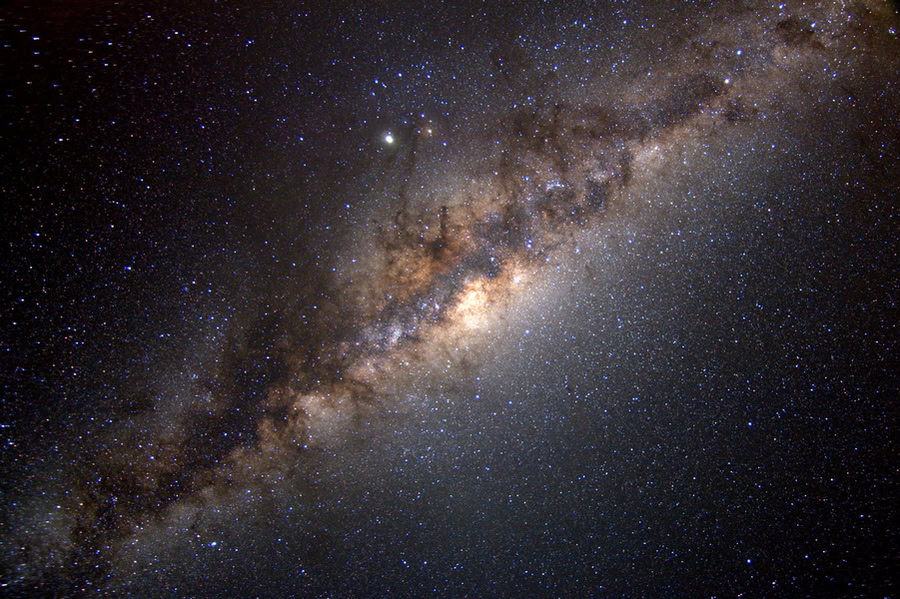The National Academy of Sciences announces the selection of one hundred sixty two of the nation’s brightest young scientists from industry, academia, and government to take part in the National Academy of Sciences’ U.S. and international Kavli Frontiers of Science symposia for 2024. These three-day events bring together scientists who are 45 or younger and engaged in exceptional research in a variety of disciplines. A committee of NAS members selected the participants from among young researchers who have already made recognized contributions to science, including recipients of major fellowships and awards. Attendees at these symposia are designated Kavli Fellows.
Beginning in 1989, the Frontiers of Science symposium series has provided a forum for the future leaders in U.S. science to share ideas across disciplines and to build contacts and networks that will prove useful as they advance in their careers. More than 6,800 young scientists have attended to date, 354 of whom have been elected to the NAS and twenty of whom have been awarded the Nobel Prize.
In 2024, the National Academy of Sciences held four Kavli Frontiers of Science symposia that included the US national symposium, international bilateral symposia with China and South Korea and a trilateral symposium with Japan and Germany.
The U.S. symposium took place on March 7-9 at the Arnold and Mabel Beckman Center of the National Academies of Sciences and Engineering in Irvine, California. The meeting covered a variety of topics in sessions focusing on ais impact on society and responsible development of ai, deep sea mining, environmental justice, exotic physics: dark energy and dark matter, gut brain axis in health and disease, hitchhikers guide to the moon, pain from bench to bedside and xenobots: living robots or organisms. A complete symposium program with videos of presentations may be found here.
The following scientists were selected for the U.S. symposium:
- Victoria Abraira, Rutgers University
- Tim Althoff, University of Washington
- Herdeline Ann Ardoña, University of California, Irvine
- Mikael Backlund, University of Illinois at Urbana-Champaign
- Keisha Bahr, Texas A&M University-Corpus Christi
- Annemarie Baltay, U.S. Geological Survey
- James Bayrer, University of California San Francisco
- Lisa Beutler, Northwestern University
- Arthur Beyder, Mayo Clinic
- Tamara Bidone, University of Utah
- Douglas Blackiston, Tufts University and Wyss Institute at Harvard University
- Katlin Bowman Adamczyk, U.S. Geological Society
- Lillian Brady, The University of Alabama at Birmingham
- Kristen Brown, Urban Institute
- Justin Caram, University of California, Los Angeles
- Lindsay Case, Massachusetts Institute of Technology
- Timothy Cernak, University of Michigan
- Anela Choy, University of California San Diego
- Alison Christopherson, Xcimer Energy Corporation
- Beth Cimini, Broad Institute
- Emily Cowan, Temple University
- Mahashweta Das, Visa ResearchBrett Denevi, Johns Hopkins Applied Physics Laboratory
- Benika Dixon, Texas A&M University School of Public Health
- Jigar Doshi, Artpark, Indian Institute of Science
- Joshua Emrick, University of Michigan
- Rana Ezzeddine, University of Florida
- Jingyi Fei, The University of Chicago
- Ian Fiebelkorn, University of Rochester
- Jessica Fitzsimmons, Texas A&M University
- Jinglin Fu, Rutgers University Camden
- Elena Glassman, Harvard University
- Satya Gontcho A Gontcho, Lawrence Berkeley National Laboratory
- Osvaldo Gutierrez, Texas A&M University
- Gregg Hallinan, California Institute of Technology
- Sonya Hanson, Flatiron Institute
- Nicholas Hawco, University of Hawaiʻi at Mānoa
- Zhu Huiyuan, University of Virginia
- Nia Imara, University of California, Santa Cruz
- Nishad Jayasundara, Duke University
- Dayna Johnson, Emory University
- Kellie Jurado, University of Pennsylvania
- Tanveer Karim, University of Toronto
- Ali Kazemian, Louisiana State University
- Rose Kennedy, University of Rochester
- Rebecca Kramer-Bottiglio, Yale University
- Sam Kriegman, Northwestern University
- Srijan Kumar, Georgia Institute of Technology
- Seema Lakdawala, Emory University
- Karolina Lempert, Adelphi University
- Tian Li, Purdue University
- Jeantine Lunshof, Harvard University
- Kara Margolis, New York University
- Zaman Mirzadeh, Barrow Neurological Institute
- Saskia Mordijck, William & Mary
- Tania Morimoto, University of California San Diego
- Gregory Mosby, NASA Goddard Space Flight Center
- Brian Muegge, Washington University School of Medicine
- Edward O’Brien, Penn State University
- Lauren Orefice, Massachusetts General Hospital / Harvard Medical School
- Alison Patteson, Syracuse University
- Diana Qiu, Yale University
- S. Emil Ruff, The Marine Biological Laboratory
- Amina Schartup, Scripps Institution of Oceanography
- Marcel Schreier, University of Wisconsin-Madison
- Shawnita Sealy-Jefferson, Ohio State University
- Nora Shipp, Carnegie Mellon University / University of Washington
- Prasad Shirvalkar, University of California, San Francisco
- Raspberry Simpson, Lawrence Livermore National Laboratory
- Marta Soden, University of Washington
- Sarah Burke Spolaor, West Virginia University
- Allison Strom, Northwestern University
- Jina Suh, Microsoft Research
- Briony Swire-Thompson, Northeastern University
- Vivianne Tawfik, Stanford University
- Hugo Tejeda, National Institute of Mental Health
- Rakshit Trivedi, Massachusetts Institute of Technology
- John Tuthill, University of Washington
- Melville Wohlgemuth, University of Arizona
- Dianne Xiao, University of Washington
- Renee Zhao, Stanford University
The Korean-American symposium was co-organized by the Korean Academy of Sciences and Technology and the U.S. National Academy of Sciences and was held January 10-12, 2024 at the Arnold and Mabel Beckman Center of the National Academies of Sciences and Engineering in Irvine, California. The meeting covered a variety of topic in sessions focusing on biomimetic / soft ionic materials, computational principles that underlie mechanisms of decision-making, computer assisted proof in mathematics and mathematical proof in computer science, electrochemistry for synthesis and sustainable chemistry, frontiers in astrophysics / space telescope, next-generation evolutionary and ecological research, new methods and considerations for marine carbon dioxide removal and climate change mitigation, next generation vaccines. A complete symposium program with videos of presentations may be found here.
The following scientists were selected for the Korean-American symposium:
- Jess Adkins, California Institute of Technology
- Rachit Agarwal, Cornell University
- Sima Asadi, University of Notre Dame
- Leilani Battle, University of Washington
- Ben Black, Rutgers University
- Camrin Braun, Woods Hole Oceanographic Institution
- Daniel (Danny) Coffey, Texas A&M University-Corpus Christi
- Katherine de Kleer, California Institute of Technology
- Daniella DellaGiustina, University of Arizona
- Rudi Fasan, University of Texas at Dallas
- Luke Fletcher, SLAC National Accelerator Laboratory
- Alexander Friedman, The University of Texas at El Paso (UTEP)
- Aubree Gordon, University of Michigan
- Stephanie Groman, University of Chicago
- Jenna Guthmiller, University of Colorado Anschutz Medical Campus
- Ming Hammond, University of Utah
- Lise-Marie Imbert-Gerard, University of Arizona
- Shasvath Kapadia, Inter-University Centre for Astronomy and Astrophysics
- Leah Katzelnick, National Institutes of Health
- Junsoo Kim, Northwestern University
- Florian Krammer, Icahn School of Medicine at Mount Sinai
- Talia Lerner, Northwestern University
- Katherine Mackey, University of California, Irvine
- Eileen Martin, Colorado School of Mines
- Caitlin Orsini, The University of Texas at Austin
- Arthur Pak, Lawrence Livermore National Laboratory
- Patrick Rafter, University of South Florida
- Jeemin Rhim, University of California, Santa Barbara
- Marco Rolandi, University of California Santa Cruz
- Eleftheria Roumeli, University of Washington
- Stephanie Rudolph, Albert Einstein College of Medicine
- Alyson Santoro, University of California Santa Barbara
- Emilia Sogin, University of California, Merced
- Jerzy Szablowski, Rice University
- David Turnbull, University of Rochester
- Christopher Uyeda, Purdue University
- Zachary Wickens, University of Wisconsin–Madison
The Japanese-American-German symposium was co-organized by the Japan Society for the Promotion of Science (JSPS), the Alexander von Humboldt Foundation (AvH) and the National Academy of Sciences. The symposium was held October 24-27 at the Brighton Hotel Kyoto in Kyoto, Japan. The meeting covered a variety of topics in sessions focusing on artificial photosynthesis – solar energy conversion into chemicals, conceptions of place and space: the politics and social dynamics of contemporary place-making and spatial negotiation, evolution of life on earth – where do we come from?, foundation models, nuclear fusion – the future of clean energy and points of no return? ice-ocean-land interactions in the past and future earth system. A complete symposium program may be found here.
The following U.S. scientists were selected for the Japanese-American-German symposium:
- Daniel Kwabena Bediako, University of California, Berkeley
- Simina Brânzei, Purdue University
- Zachary Calamari, Baruch College, City University of New York
- Daniel Casey, Lawrence Livermore National Laboratory
- Matthew Comstock, Michigan State University
- Pedro DiNezio, University of Colorado, Boulder
- Carlton Gover, The University of Kansas
- Zhiting Hu, University of California, San Diego
- Falko Judt, National Center for Atmospheric Research
- Sarah King, University of Chicago
- Nicholas Laluk, University of California, Berkeley
- Monica Munoz-Torres, University of Colorado Anschutz Medical Campus
- Nikos Papastavrou, Salk Institute for Biological Studies
- Will Perkins, Georgia Tech
- Archana Raja, Lawrence Berkeley National Laboratory
- Gabriela Schlau-Cohen, Massachusetts Institute of Technology
- Will Terrano, Arizona State University
- Katrina Twing, Weber State University
- Emily Van Alst, Washington State University
- Hannah Zanowski, University of Wisconsin
The Chinese-American symposium was co-organized by the Chinese-Academy of Sciences and the National Academy of Sciences and was held November 19-21, 2024 in Beijing, China. The meeting covered a variety of topics in sessions focusing on ai for scientific discovery, connectomes in psychiatric diseases, exoplanets, in situ structural cell biology, nanopore-based bioanalysis, ocean carbon dioxide removal, quantum materials for future technology and understanding ai with new mathematical instruments. A complete symposium program may be found here.
The following U.S. scientists were selected for the Chinese-American symposium:
- Morgane Austern, Harvard University
- Sara Beery, Massachusetts Institute of Technology
- Sarah Blunt, University of California, Santa Cruz
- Blakesley Burkhart, Rutgers, The State University of New Jersey
- Seth Bushinsky, University of Hawaiʻi at Mānoa
- Benedikt Diemer, University of Maryland, College Park
- Bryndan Durham, University of Florida
- Zhou Fan, Yale University
- Tara Fetherolf, University of California, Riverside
- Alex Gagnon, University of Washington
- Todd Gingrich, Northwestern University
- Satya Gontcho A Gontcho, Lawrence Berkeley National Laboratory
- Ki Goosens, Icahn School of Medicine at Mount Sinai
- Nicholas Hawco, University of Hawaii at Manoa
- Elizabeth Holly, Rutgers University – Newark
- Andrew Laszlo, University of Washington
- Anthony Mustoe, Baylor College of Medicine
- Aaditya Ramdas, Carnegie Mellon University
- Dustin Scheinost, Yale School of Mediicne
- Sabrina Stierwalt, Occidental College
- Jina Suh, Microsoft Research
- Nathaniel Szymczak, University of Michigan
- Angélica Torres-Berrio, Massachusetts General Hospital – Harvard Medical School
- Jesús Velázquez, University of California, Davis
- Alexandra Velian, University of Washington
- Hongjie Wang, University of Rhode Island
- Stephen Wilson, University of California, Santa Barbara
The Kavli Frontiers of Science symposium is sponsored by the National Academy of Sciences. Major support is provided by the Kavli Foundation, with additional funding from the National Academy of Sciences.
The National Academy of Sciences is a private organization of scientists and engineers dedicated to the furtherance of science and its use for the general welfare. It was established in 1863 by a congressional act of incorporation signed by Abraham Lincoln that calls on the Academy to act as an official adviser to the federal government, upon request, in any matter of science or technology.
Meeting programs and more information about Kavli Frontiers of Science are available here.


